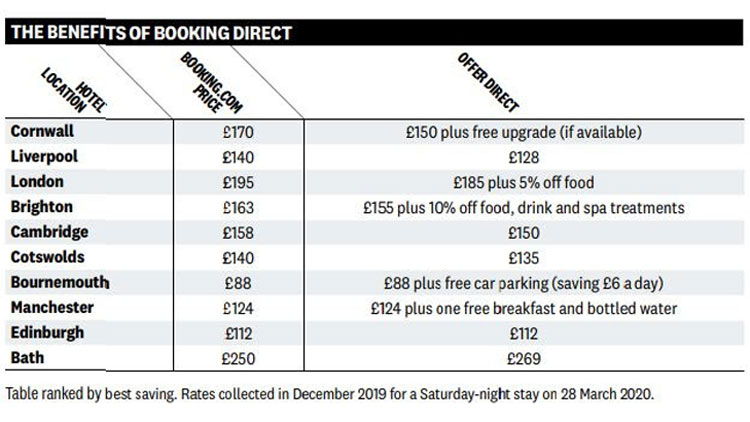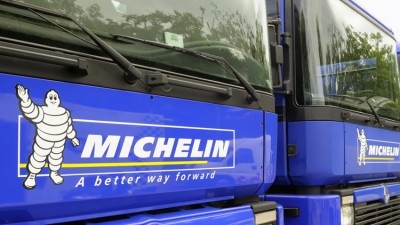UKHospitality reiterates calls to ban rate parity clauses following Which? research

The results of a Which? Travel investigation, released today (3 March), show that in eight out of 10 cases, UK consumers can get a better deal if they book a room directly with their hotel rather than through an OTA like Booking.com or Expedia.
Which? Travel looked up the price for a one-night stay at 10 different UK hotels listed on Booking.com, and then contacted each of the hotels directly to ask if they could better the online price.
In eight instances the hotels were able to offer either a better price or an incentive such as free breakfast or an upgrade (see below).
The research suggests that consumers are paying up to 12 percent more for their rooms than they need to.
According to Which?, it is usually more expensive to book a hotel room online rather than directly due to a combination of commission charged on bookings by OTAs, and the enforcement of ‘rate-parity clauses’ in their contracts with hotels.
Parity clauses, which are banned in France, Italy and Austria, prevent hotels from offering lower prices on their own websites than those listed on OTA websites.
However, they do not stop hotels from being able to offer a better rate when contacted directly over the phone, via email, or in person.
Commenting on the findings, trade body UKHospitality repeated its call for the use of parity clauses by OTAs to be prohibited.
“This data reiterates what we have been saying for a long time,” says UKHospitality chief executive Kate Nicholls.
“Parity clauses do not favour consumers and they take commercial power away from the hotels. They have been banned in other European countries and they should be banned in the UK.”
When contacted by Which?, both Booking.com and Expedia denied that their commissions are driving up prices.
This is not the first time OTAs have found themselves in hot water.
Last year six major hotel booking sites – Expedia, Booking.com, Agoda, Hotels.com, ebookers, and trivago - agreed to stop using “misleading” sales tactics following a probe by the Competition and Markets Authority (CMA).
The CMA said at the time that all the sites had agreed to end practices such as giving a false impression of a room’s popularity, not displaying hidden charges, and promoting discount deals irrelevant to the customer’s search criteria.





















